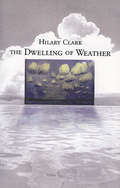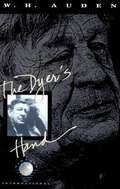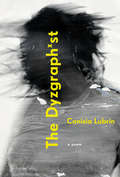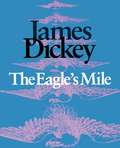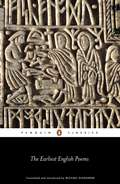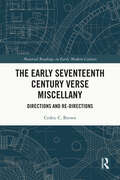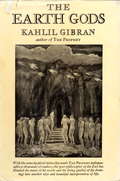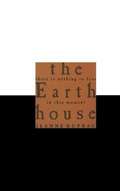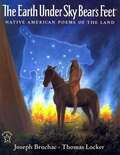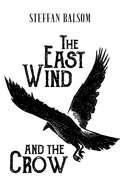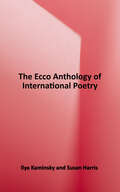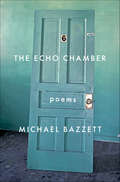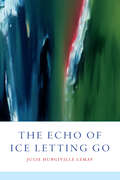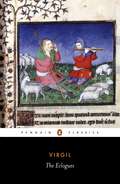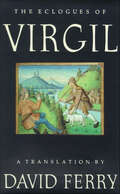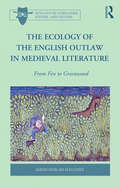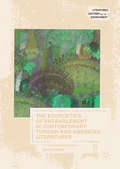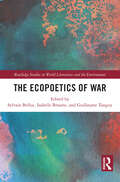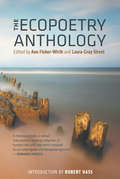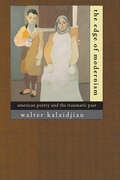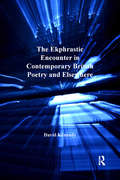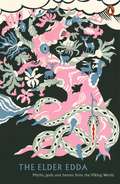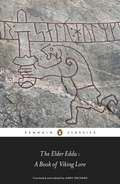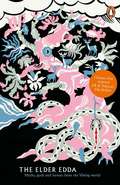- Table View
- List View
The Dwelling of Weather
by Hilary ClarkShortlisted for the 2003 Anne Szumigalski Award for Poetry and for the 2003 City of Saskatoon Book Award (Saskatchewan Book Awards) Hilary Clark's newest volume of poems shelters a world of stories and poems, of the tricks of language that are the dearest home of a writer. "The hinge," she writes later in "Dwelling", "is attention to the moment, its particular light." And Clark attends with mind acutely tuned, with heart open and eager; she writes with the subtle nuances, the gentle shifts of one who has dwelt long in words and found in them an endless unfolding of possibilities: "each word could be others, thresholds to possible tales" ("Other Worlds"). These poems trace, through their web of reference, a life story of reading -- the Bible, Shakespeare, Blake, Lewis Carroll, and Emily Bronte meet Michael Palmer, Fred Wah, and Robert Duncan -- not just Clark's life story but any reader’s who finds in words a way to lure the spirit homeward.
The Dyer's Hand and Other Essays
by W. H. AudenIn this volume, W. H. Auden assembled, edited, and arranged the best of his prose writing, including the famous lectures he delivered as Oxford Professor of Poetry. The Dyer's Hand is a surprisingly personal, intimate view of the author's mind, whose central focus is poetry--Shakespearean poetry in particular--but whose province is the author's whole experience of the twentieth century.
The Dyzgraphxst
by Canisia LubrinWindham-Campbell Prize, WinnerOCM Bocas Prize for Caribbean Literature, WinnerOCM Bocas Prize for Caribbean Literature Poetry, WinnerGriffin Poetry Prize, WinnerDerek Walcott Prize for Poetry, Winner Rebel Women Lit Caribbean Readers' Awards, FinalistGovernor General's Literary Award for Poetry, FinalistTrillium Book Award for Poetry, FinalistRaymond Souster Award, LonglistPat Lowther Memorial Award, LonglistQuill & Quire 2020 Books of the Year: Editor&’s PicksCBC Best Canadian Poetry of 2020Winnipeg Free Press Top 10 Poetry Picks of 2020The Paris Review, Contributor's Edition, Best Books of 2020 The Dyzgraphxst presents seven inquiries into selfhood through the perennial figure Jejune. Polyvocal in register, the book moves to mine meanings of kinship through the wide and intimate reach of language across geographies and generations. Against the contemporary backdrop of intensified capitalist fascism, toxic nationalism, and climate disaster, the figure Jejune asks, how have I come to make home out of unrecognizability. Marked by and through diasporic life, Jejune declares, I was not myself. I am not myself. My self resembles something having nothing to do with me.
The Eagle's Mile (Wesleyan Poetry Series)
by James DickeyA book of new poems by a major writer is an event. A book of new poems that marks a different, more powerful approach is cause for celebration. "What I looked for here," James Dickey tells us about The Eagle's Mile, "was a flicker of light 'from another direction,' and when I caught it - or thought I did - I followed where it went, for better or worse." In this new work, Dickey edges away from the narrative-based poems of his previous books and gives instead more primacy to the language in which he writes. His poetry gains flexibility, and his poetic power becomes even surer and more clearly expressed. "I have experimented," Dickey writes, "and look forward to experimenting more."
The Earliest English Poems
by Michael AlexanderAnglo-Saxon poetry was produced between 700 and 1000 AD for an audience that delighted in technical accomplishment, and the durable works of Old English verse spring from the source of the English language. Michael Alexander has translated the best of the Old English poetry into modern English and into a verse form that retains the qualities of Anglo-Saxon metre and alliteration. Included in this selection are the ‘heroic poems’ such as Widsith, Deor, Brunanburh and Maldon, and passages from Beowulf; some of the famous ‘riddles’ from The Exeter Book; all the ‘elegies’, including The Ruin, The Wanderer, The Seafarer, The Wife’s Complaint and The Husband’s Message, in which the virtu of Old English is found in its purest and most concentrated form; together with the great Christian poem The Dream of the Rood.
The Early Seventeenth Century Verse Miscellany: Directions and Re-Directions (Material Readings in Early Modern Culture)
by Cedric C. BrownA deeply researched study of the social transmission and adaptation of poetry texts originating in pre-Civil War England, traced through the seventeenth century and sometimes beyond. Both manuscript and printed miscellanies are used, as well as other forms of publication, and case studies unusually span elite, popular and provincial audiences. As far as possible, texts are placed according to their original contexts and functions (“Directions”) then followed through various answerings, parodies, co-optings and social, commercial and political adaptations (“Re-directions”). Case studies choose examples which have not been fully researched, so that a large amount of new material is presented from poets writing in a variety of environments. Results are sometimes startling and often amusing, giving a vivid sense of how poems were read and used in material exchange and providing a picture of literary activity far removed from what traditional, canonical literary history has often assumed.
The Early Textual History of Lucretius' De rerum natura
by David ButterfieldThis is the first detailed analysis of the fate of Lucretius' De rerum natura from its beginnings in the 50s BC down to the creation of our earliest extant manuscripts during the Carolingian age. A detailed investigation of the knowledge of Lucretius' poem among writers throughout the Roman, and subsequently the medieval, worlds allows fresh insight into the work's readership and reception, and an assessment of the value of the indirect tradition for editing the poem. The first extended analysis of the 170+ subject headings (capitula) that intersperse the text reveals the close engagement of Roman readers. A fresh inspection and assignation of marginal hands in the poem's most important manuscript provides new evidence about the work of Carolingian correctors and the basis for a new Lucretian stemma codicum. Further clarification of the interrelationship of Renaissance manuscripts of Lucretius gives additional evidence of the poem's reception in fifteenth-century Italy.
The Earth Gods
by Kahlil Gibran"The Earth Gods, the last book to be published while Gibran was still in this world, came into the poet's hands two weeks before he was to lay aside all earthly volumes. . . . He had a peculiar feeling of tenderness for this book, unlike what he felt for any of the others. 'Because,' he said, 'it was written out of the poet's hell--a process of childbirth and child-bearing.' . . . "It is, in my opinion, one of the greatest poems in the language. The Earth Gods is, perhaps, a book for the mystic, a poet's book for poets, for the initiate and the dreamer of vast dreams. Yet I have known those who pride themselves on being highly practical and feet-on-the-ground, who disown any bent toward the mystical and the occult, to pronounce it a book of wonder and power. And as a child of seven to whom I read portions of the poem on request, says unvaryingly, 'Read it again!' This, perhaps, for the music and the almost unearthly beauty of rhythm."--Barbara Young, in This Man From Lebanon: A Study of Kahlil Gibran
The Earth House
by Jeanne DuprauTwo women in the midst of busy suburban lives, one a dental hygienist, the other, a technical writer, visit a Zen center "out of curiosity and some vague inclination to find something deeper than our everyday experience." As these Western women encounter Eastern spirituality, they begin to develop a new life plan--centered on building a house in the Sierras--and life begins a new plan for them. Soon, the course of nature and humanity will collide, converge, and compromise in two lives transformed by pain and patience. Jeanne DuPrau gives us a powerful lesson in listening, loving, and letting go.
The Earth Under Sky Bear's Feet: Native American Poems of the Land
by Joseph Bruchac Thomas Locker"A thoughtful collection that eloquently bears out the theme of unity of all creatures. " --School Library Journal Native American elders will tell you there is as much to see in the night as in the familiar light of day, and here Abenaki storyteller and American Book Award recipient Joseph Bruchac offers twelve unforgettable stories of the living earth seen from the sky. "From the Mohawk and Missisquoi peoples of the Northeastern United States to the Pima, Cochiti Pueblo, and Navajo people of the Southwest to the Subarctic Inuit, these pieces reflect an awe and appreciation of the natural world. Locker's deeply hued paintings burst with the beauty of night. " --The Horn Book
The East Wind and the Crow
by Steffan BalsomThis collection of poems and essays ranges from reflections on the unknowable ('Shiloh'), the eternal ('To a Holly Tree') and the totemic ('Dreaming Brother Beast'), to the light-hearted and the downright silly ('Things Which Are Thingy' and 'A Brief History of Muddy-Evil Britain').
The Ecco Anthology of International Poetry
by Ilya Kaminsky Susan HarrisIn this remarkable anthology, introduced and edited by Ilya Kaminsky and Susan Harris, poetic visions from the twentieth century will be reinforced and in many ways revised. Here, alongside renowned masters, are internationally celebrated poets who have rarely, if ever, been translated into English.
The Echo Chamber: Poems
by Michael BazzettFrom Michael Bazzett, poet and translator of The Popol Vuh, a collection that explores the myth of Echo and Narcissus, offering a reboot, a remix, a reimagining. “Narcissus was never one to see himself // in moving water. // He liked his image / still.” In The Echo Chamber, myth is refracted into our current moment. A time traveler teaches a needleworker the pleasures of social media gratification. A man goes looking for his face and is first offered a latex mask. A book reveals eerie transmutations of a simple story. And the myth itself is retold, probing its most provocative qualities—how reflective waters enable self-absorption, the tragic rightness of Echo and Narcissus as a couple.The Echo Chamber examines our endlessly self-referential age of selfies and televised wars and manufactured celebrity, gazing lingeringly into the many kinds of damage it produces, and the truths obscured beneath its polished surface. In the process, Bazzett cements his status as one of our great poetic fools—the comedian who delivers uncomfortable silence, who sheds layers of disguises to reveal light underneath, who smuggles wisdom within “rage-mothered laughter.” Late-stage capitalism, history, death itself: all are subject to his wry, tender gaze. By turns searing, compassionate, and darkly humorous, The Echo Chamber creates an echo through time, holding up the broken mirror of myth to our present-day selves.
The Echo of Ice Letting Go
by Julie LeMayRooted in the harsh, yet beautiful landscape of Alaska, this collection of poems is at once comforting and disquieting, permeated with wisdom, darkness, and resilience. Taken together, the poems form a powerful narrative, as Julie Hungiville LeMay relates a personal story of the recurrence of cancer and interweaves it with an account of her son’s struggle with addiction. In a world of so much pain, her poems ask, how can we find meaning? The answer, often, is nature: among “spruce branches that whisper” and “the yellow joy / of warblers.” Half-found poems that contain lines from John Muir's essays are arranged throughout the book like touchstones, while other poems invoke the spirit of Wordsworth. LeMay’s voice is precise and clear, her lines musical and sonically rich, making this ambitious, wide-ranging book one that readers won’t soon forget.
The Eclogues
by VirgilHaunting and enigmatic, Virgil's Eclogues combined a Greek literary form with scenes from contemporary Roman life to create a work that inspired a whole European tradition of pastoral poetry. For despite their rustic setting and the beauty of their phrasing, the poems in Virgil's first collection are also grounded in reality. Shepherds are overwhelmed by the torments of poetic love - but they must also endure such real-life events as the tragic consequences of Julius Caesar's murder in 44 bc and a civil war. In giving unforgettable expression to the disasters of the day through poetry, the Eclogues paved the way for the Georgics and the Aeneid, the two greatest works of Latin literature, and are also a major masterpiece in their own right.
The Eclogues of Virgil
by Virgil“Fresh-minted and sparkling . . . Ferry’s translation wonderfully preserves the exquisite harmonies of the mode while giving it a vigorous edge of reality.” —Robert Taylor, The Boston GlobeVirgil’s great lyrics, rendered by the acclaimed translator of Gilgamesh . . . The Eclogues of Virgil gave definitive form to the pastoral mode, and these magically beautiful poems, which were influential in so much subsequent literature, perhaps best exemplify what pastoral can do. “Song replying to song replying to song,’ touchingly comic, poignantly sad, sublimely joyful, the various music that these shepherds make echoes in scenes of repose and harmony, and of hardship and trouble in work and love.Available in ebook for the first time, this English-only edition of The Eclogues of Virgil includes concise, informative notes and an introduction that describes the fundamental role of this deeply original book in the pastoral tradition.“Direct, unmannered and fresh: a modern version of classical simplicity.” —Merle Rubin, Los Angeles Times“Mr. Ferry is a gifted poet and much-admired translator . . . Those to whom the original is a sealed book will enjoy much of its charm through the medium of the author’s accomplished translation, while those who, like Shakespeare, have ‘small Latin’ can experience the additional pleasure of savoring, with Mr. Ferry’s help, the musical perfection of Virgil’s lines.” —Bernard Knox, The Washington Times“Ferry has achieved a high degree of fidelity to what Virgil wrote . . . Simple, luminous clarity.” —Richard Jenkyns, The New Republic
The Ecology of the English Outlaw in Medieval Literature: From Fen to Greenwood (Outlaws in Literature, History, and Culture)
by Sarah Harlan-HaugheyArguing that outlaw narratives become particularly popular and poignant at moments of national ecological and political crisis, Sarah Harlan-Haughey examines the figure of the outlaw in Anglo-Saxon poetry and Old English exile lyrics such as Beowulf, works dealing with the life and actions of Hereward, the Anglo-Norman romance of Fulk Fitz Waryn, the Robin Hood ballads, and the Tale of Gamelyn. Although the outlaw's wilderness shelter changed dramatically from the menacing fens and forests of Anglo-Saxon England to the bright, known, and mapped greenwood of the late outlaw romances and ballads, Harlan-Haughey observes that the outlaw remained strongly animalistic, other, and liminal. His brutality points to a deep literary ambivalence towards wilderness and the animal, at the same time that figures such as the Anglo-Saxon resistance fighter Hereward, the brutal yet courtly Gamelyn, and Robin Hood often represent a lost England imagined as pristine and forested. In analyzing outlaw literature as a form of nature writing, Harlan-Haughey suggests that it often reveals more about medieval anxieties respecting humanity's place in nature than it does about the political realities of the period.
The Ecopoetics of Entanglement in Contemporary Turkish and American Literatures
by Meliz ErginThis book foregrounds entanglement as a guiding concept in Derrida's work and considers its implications and benefits for ecocritical thought. Ergin introduces the notion of "ecological text" to emphasize textuality as a form of entanglement that proves useful in thinking about ecological interdependence and uncertainty. She brings deconstruction into a dialogue with social ecology and new materialism, outlining entanglements in three strands of thought to demonstrate the relevance of this concept in theoretical terms. Ergin then investigates natural-social entanglements through a comparative analysis of the works of the American poet Juliana Spahr and the Turkish writer Latife Tekin. The book enriches our understanding of complicity and accountability by revealing the ecological network of material and discursive forces in which we are deeply embedded. It makes a significant contribution to current debates on ecocritical theory, comparative literature, and ecopoetics.
The Ecopoetics of War (Routledge Studies in World Literatures and the Environment)
by Sylvain Belluc, Isabelle Brasme, and Guillaume TanguyThe Ecopoetics of War explores the interrelationality of human and nonhuman entities in the context of conflict, as recorded in literature and culture. This collection of essays demonstrates the specific and fertile role of literature in representations of war, as it foregrounds the manifold ways in which the borders between human and nonhuman—including flora,fauna, and technology—become porous, thus questioning traditional onto-epistemological and ethical categories.Bringing together British, American, and postcolonial studies, The Ecopoetics of War covers a variety of historical periods, geographical areas, and literary genres. Interdisciplinary in its outlook, it intertwines war studies, ecocriticism, literary theory, philosophy, and cultural studies. By analyzing the stylistic and discursive strategies devised by writers to translate the sensory experience of the battlefield, the contributors shed light on the unique capacity of literature to foreground the entanglement of human and nonhuman in the context of armed conflict, and thus unveil an “ecopoetics of war.”This collection will interest scholars of literature, specialists of war studies and ecocriticism, and any reader interested in such issues such as ecowar, ecocide, the Anthropocene, or environmental justice. It can inspire interdisciplinary teaching or research projects, especially in the current context of global environmental crisis.
The Ecopoetry Anthology
by Robert Hass Laura-Gray Street Ann Fisher-WirthDefinitive and daring, The Ecopoetry Anthology is the authoritative collection of contemporary American poetry about nature and the environment--in all its glory and challenge. From praise to lament, the work covers the range of human response to an increasingly complex and often disturbing natural world and inquires of our human place in a vastness beyond the human.To establish the antecedents of today's writing,The Ecopoetry Anthology presents a historical section that includes poetry written from roughly the mid-nineteenth to the mid-twentieth century. Iconic American poets like Walt Whitman and Emily Dickinson are followed by more modern poets like Wallace Stevens, William Carlos Williams, Ezra Pound, and even more recent foundational work by poets like Theodore Roethke, Elizabeth Bishop, Robert Hayden, and Muriel Rukeyser. With subtle discernment, the editors portray our country's rich heritage and dramatic range of writing about the natural world around us.
The Edge of Modernism: American Poetry and the Traumatic Past
by Walter KalaidjianIn The Edge of Modernism, Walter Kalaidjian explores American poetry on genocide, the Holocaust, and total war as well as on postwar social antagonisms, racial oppression, and domestic violence. By asking what it means for traumatic memory to have agency in the American verse tradition, Kalaidjian creates an original historical account of how American poets became witnesses, often unconsciously, to modern extremity. Combining psychoanalytic theory and cultural studies, this intense, sweeping account of modern poetics analyzes the ways in which literary form gives testimony to the trauma of twentieth-century history. Through close readings of well-known and less familiar poets—among them Langston Hughes, Countee Cullen, Claude McKay, Edwin Rolfe, Sylvia Plath, Adrienne Rich, Peter Balakian, Rachel Blau DuPlessis, Anne Sexton, and Anthony Hecht—Kalaidjian discerns the latent "edge" of modern trauma as it cuts through the literary representations, themes, and formal techniques of twentieth-century American poetics. In this way, The Edge of Modernism advances an innovative and dynamic model of modern periodization.
The Ekphrastic Encounter in Contemporary British Poetry and Elsewhere
by David KennedyExamining a wide range of ekphrastic poems, David Kennedy argues that contemporary British poets writing out of both mainstream and avant-garde traditions challenge established critical models of ekphrasis with work that is more complex than representational or counter-representational responses to paintings in museums and galleries. Even when the poem appears to be straightforwardly representational, it is often selectively so, producing a 'virtual' work that doesn't exist in actuality. Poets such as Kelvin Corcoran, Peter Hughes, and Gillian Clarke, Kennedy suggests, relish the ekphrastic encounter as one in which word and image become mutually destabilizing. Similarly, other poets engage with the source artwork as a performance that participates in the ethical realm. Showing that the ethical turn in ekphrastic poetry is often powerfully gendered, Kennedy also surveys a range of ekphrastic poets from the Renaissance and nineteenth century to trace a tradition of female ekphrastic poetry that includes Pauline Stainer and Frances Presley. Kennedy concludes with a critique of ekphrastic exercises in creative writing teaching, proposing that ekphrastic writing that takes greater account of performance spectatorship may offer more fruitful models for the classroom than the narrativizing of images.
The Elder Edda: A Book Of Viking Lore (Legends from the Ancient North)
by Petra BornerPart of a new series Legends from the Ancient North, The Elder Edda is one of the classic books that influenced JRR Tolkien's The Hobbit and The Lord of the Rings'So the company of men led a careless life,All was well with them: until One beganTo encompass evil, an enemy from hell.Grendel they called this cruel spirit...'J.R.R. Tolkien spent much of his life studying, translating and teaching the great epic stories of northern Europe, filled with heroes, dragons, trolls, dwarves and magic. He was hugely influential for his advocacy of Beowulf as a great work of literature and, even if he had never written The Hobbit and The Lord of the Rings, would be recognised today as a significant figure in the rediscovery of these extraordinary tales.Legends from the Ancient North brings together from Penguin Classics five of the key works behind Tolkien's fiction.They are startling, brutal, strange pieces of writing, with an elemental power brilliantly preserved in these translations.They plunge the reader into a world of treachery, quests, chivalry, trials of strength.They are the most ancient narratives that exist from northern Europe and bring us as near as we will ever get to the origins of the magical landscape of Middle-earth (Midgard) which Tolkien remade in the 20th century.
The Elder Edda: A Book of Viking Lore
by Andy OrchardCompiled by an unknown scribe in Iceland around 1270, and based on sources dating back centuries earlier, these mythological and heroic poems tell of gods and mortals from an ancient era: the giant-slaying Thor, the doomed Völsung family, the Hel-ride of Brynhild and the cruelty of Atli the Hun. Eclectic, incomplete and fragmented, these verses nevertheless retain their stark beauty and their power to enthrall, opening a window on to the thoughts, beliefs and hopes of the Vikings and their world.
The Elder Edda: Myths, Gods, and Heroes from the Viking World (Legends from the Ancient North)
by Andy OrchardLegends from the Ancient North: Five classics of Norse literature that inspired J. R. R. Tolkien's epic vision in The Hobbit and The Lord of the Rings <P><P> Legendary fantasy writer J. R. R. Tolkien spent much of his life studying, translating, and teaching the ancient tales of northern Europe at Oxford and drew on them for his own writing. These epic stories, with their wizards and knights, dragons and trolls, cursed rings and magic swords, are as fascinating today as they were thousands of year ago. Reading them brings us as close as we will ever get to the magical worlds of the Vikings and the origins of their twentieth-century counterpart: Tolkien’s Middle Earth. <P><P> Compiled by an unknown scribe in Iceland around 1270, and based on sources dating centuries earlier, the heroic poems of The Elder Edda tell of gods and mortals from an ancient era: the giant-slaying Thor, the doomed Völsung family, the Hell-ride of Brynhild, and the cruelty of Atli the Hun. Eclectic and fragmented, these verses nevertheless retain their stark beauty and power to enthrall, opening a window on to the thoughts, beliefs and hopes of the Vikings and their world. <P><P> For more than seventy years, Penguin has been the leading publisher of classic literature in the English-speaking world. With more than 1,700 titles, Penguin Classics represents a global bookshelf of the best works throughout history and across genres and disciplines. Readers trust the series to provide authoritative texts enhanced by introductions and notes by distinguished scholars and contemporary authors, as well as up-to-date translations by award-winning translators.
